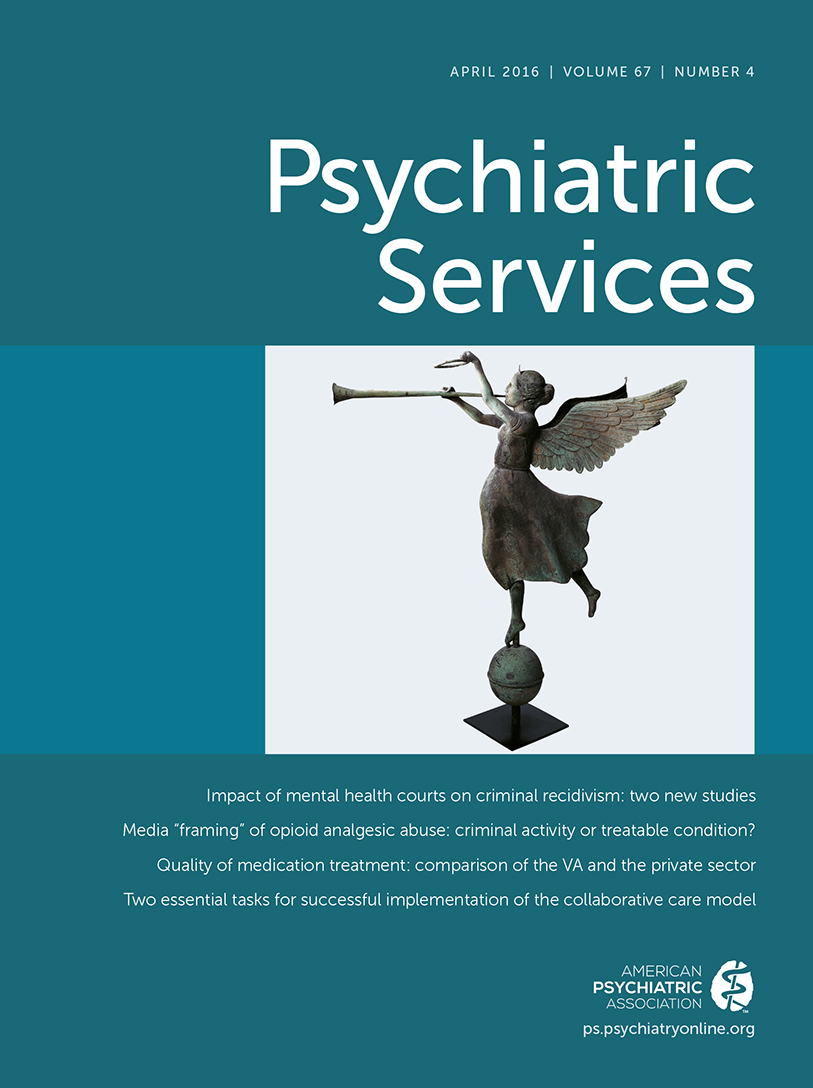Psychiatric Pharmacists: Key Allies to Improve Antipsychotic Metabolic Monitoring
Pharmacotherapy is a critical component in the treatment of patients with mental illness. With increasing demand for psychiatric services, in part due to national changes in expansion of coverage for psychiatric care, incorporating psychiatric pharmacy specialists into the comprehensive treatment team may ease the burden within health care systems. Psychiatric pharmacy specialists can obtain the credential of Board Certification in Psychiatric Pharmacy from the Board of Pharmacy Specialties to optimize care in collaboration with prescribers and other members of the health care team, as recommended by the January 2015 College of Psychiatric and Neurologic Pharmacists position paper.
Data consistently demonstrate the prevalence of suboptimal monitoring of metabolic outcomes for patients who are treated with second-generation antipsychotic (SGA) medications. The University of Michigan Health System fit this profile, thus prompting our initiative. Designed in concert with our Ambulatory Psychiatry Metabolic Monitoring work group, our approach, implemented in September 2014, utilized a psychiatric pharmacist and student pharmacists to help provide enhanced metabolic monitoring in ambulatory psychiatry. We initially focused on creating reports and automating reminders for collection of the necessary metabolic laboratory parameters. However, immediate further action was deemed necessary to address the large number of patients treated with SGAs who did not have laboratory values for metabolic monitoring recorded in their charts.
With approval of the prescriber in psychiatry, the psychiatric pharmacist and student pharmacists took the following actions: ordered lipid panels and hemoglobin A1c tests for patients currently prescribed an SGA but who had not received these tests in the past year, notified patients via mailed or electronic portal message which laboratory tests were needed, called patients 30 days after the notifications were sent to remind them about the needed tests, and sent electronic messages to providers through the electronic medical record to remind their patient at an upcoming appointment to have the tests completed. Recommended lab tests were completed by 77% (69 of 90) of patients as a result of this initiative.
Most patients completed laboratory tests promptly after being notified. The electronic messages to providers were also successful in prompting collection of labs, particularly if these messages were sent within 48 hours of the patient’s appointment. Phone call reminders to patients after notifications were useful with only a handful of patients, because patients were difficult to reach by phone.
In this small population, the incidence of abnormal lab tests that required intervention as defined by our primary care colleagues (low-density lipoprotein >190 mg/dL, triglycerides >500 mg/dL, and hemoglobin A1c >7%) was relatively low. On receiving abnormal laboratory results, prescribers of the SGAs were encouraged to contact the psychiatric pharmacist for assistance in management. Student pharmacists assisted in tracking the lab results, and the psychiatric pharmacist worked closely with the prescriber regarding management strategies. The patient’s primary care provider was also notified about abnormal laboratory results.
In addition to improvement in metabolic monitoring, involvement of a psychiatric pharmacist in metabolic monitoring is a potential solution to the debate regarding who is responsible for intervening when abnormalities arise. Psychiatric pharmacists can make recommendations regarding management as well as facilitate communication between the patient’s primary care provider and psychiatric team members.
The key to the most complete and efficient attainment of necessary lab tests was continuity in the communication between pharmacist, provider, and patient. Because automated electronic reminders are not yet built into our electronic medical record, we found that each individual throughout the process needs to be informed and educated on not only the actions needed but also on the importance of metabolic monitoring. This initiative has led to an understanding of the role that a psychiatric pharmacist can play as an educator to the patients as well as to providers.
Monitoring for metabolic adverse effects of SGAs is an aspect of patient care that is not effectively managed in most settings. As we have learned through the continued efforts of this project, the psychiatric pharmacist can focus efforts to fill gaps in patient care, playing a vital role on the health care team by enhancing the quality and safety of patient care. Moving forward, our goal is to more clearly report on the role of psychiatric pharmacists in enhancing adherence to metabolic monitoring guidelines for individuals receiving SGAs in ambulatory psychiatry.



